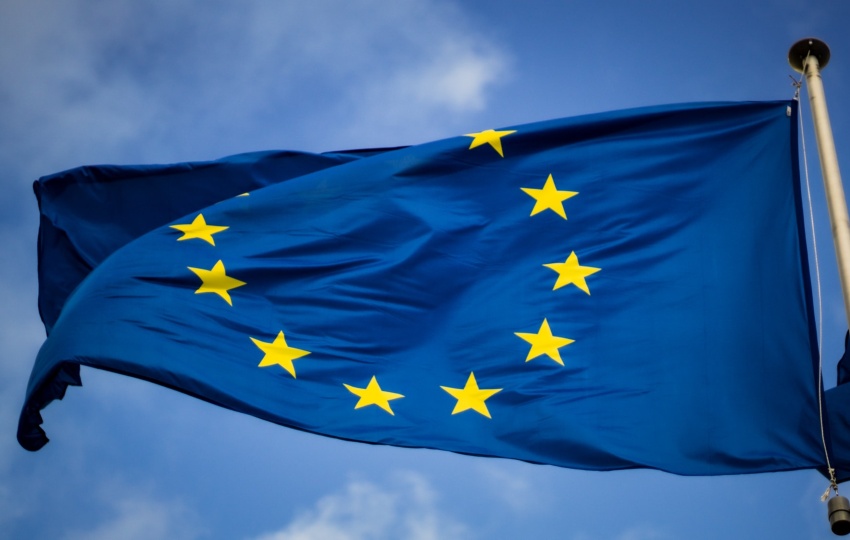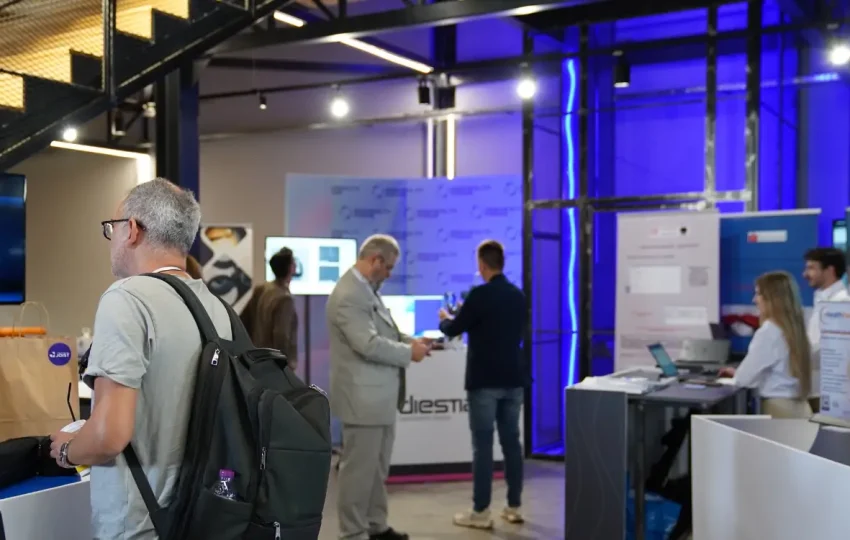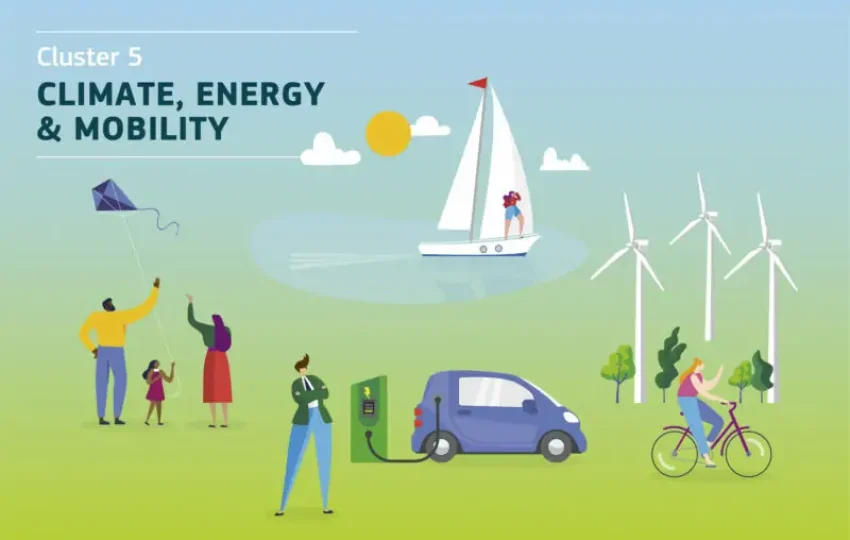The COVID-19 pandemic exposed the weaknesses of the world’s health systems and the European Health inefficiencies. As we are still trying to deal with the consequences of this health crisis, health has become a European priority. There are many Horizon Europe calls for proposals 2021 with a significant budget to support EU health and fund the transition to a more resilient and safer future.
Horizon Europe is the critical funding programme supporting research and innovation in Europe. With a budget of more than €95.5 billion, there are many opportunities for European funding from the Horizon Europe programme to apply.
Are you a researcher, innovator or health professional with an innovative idea about health? Then, it would help if you learned about these high budget Horizon Europe calls for proposals 2021 that can help you fund your innovative research projects and make an impact.
Find these Horizon Europe Calls for Proposals 2021 on EUcalls
During your search for Horizon Europe calls for proposals 2021, you should take advantage of all the benefits that EUcalls innovative platform can offer you. Becoming an EUcalls member can save you much time during your search for the right call that best fits your needs and from finding the right partners to work with.
To make it easier for you, our expert team has gathered a list of 7 Horizon Europe calls for proposals 2021 that you can find on our platform:
Title: European partnership on transforming health and care systems
Programme: HORIZON-HLTH-2022-CARE-10-01
Budget: € 100.000.000
Description: For many reasons (demographic changes, technological progress, fiscal constraints, public health emergencies etc.) the European health and care systems are expected to be subject to severe stress. In particular, the COVID-19 pandemic has highlighted existing structural weaknesses in health and care systems, and emphasised areas where not enough effort, planning and resources had been directed to. In addition, rapid technological and societal evolutions call for urgent responses to increasing demands and expectations from citizens.
There is a need to accelerate the transition towards more efficient, sustainable, resilient, innovative and accessible health and care systems in Europe. To this end, the creation of a research and innovation (R&I) partnership with a focus on health and care systems’ transformation represents a unique strategic opportunity to bring together stakeholders, create synergies, coordinate R&I actions, facilitate the digitization of health and care services and support the transformation of health and care systems with innovative solutions driven by knowledge and evidence.
Deadline: 21-04-2022
Title: Development of new effective therapies for rare diseases
Programme: HORIZON-HLTH-2022-DISEASE-06-04-two-stage
Budget: € 60.000.000
Description: Despite the considerable amount of knowledge that has been accumulated and the new orphan medicines developed in recent years, the number of available therapies for rare diseases remains low, as fewer than 6% of rare diseases have an approved treatment option.
The joint evaluation of the regulations on orphan medicinal products and paediatric medicines concluded that those regulations have boosted the development for new therapies for rare diseases but have not yet adequately managed to direct research and innovation in areas of greatest unmet medical need. Actually, there is an urgent unmet medical need for the development of therapies for rare diseases, where there is still no approved therapeutic option available.
Deadline: 01-02-2022
Title: Vaccines 2.0 – developing the next generation of vaccines
Programme: HORIZON-HLTH-2022-DISEASE-06-03-two-stage
Budget: € 40.000.000
Description: Infectious diseases, including antimicrobial resistant (AMR) infections, remain a major threat to health and health security in the EU and globally. The availability of more effective, accessible and affordable vaccines would provide the most cost-effective preventive measure against the health threat of epidemics and AMR pathogens. Vaccines against diseases, such as AIDS, tuberculosis (TB), malaria, neglected tropical diseases, hepatitis C and water-borne diseases are essential to achieve the WHO targets to control the spread of infectious diseases. The first generation of vaccines against some of the pathogens have proven to be suboptimal and not effective enough to protect the population. Many viruses of pandemic potential are variable in their surface antigen composition, and novel technologies are required to develop efficient vaccines against each new variant efficiently and in a short timeframe. To ensure that more effective, accessible and affordable vaccines against all major infectious diseases become a reality, it is essential to sustain a diverse and modernised vaccine development pipeline.
Deadline: 01-02-2022
Programme: HORIZON-HLTH-2022-TOOL-11-02
Budget: € 35.000.000
Description: With the emerging use of real-world data (RWD) and synthetic data by the pharmaceutical industry and medical devices industry, regulators and HTA bodies need to perform targeted validation of claims through independent analysis. The principal aim of this topic is to address the data needs of health regulatory bodies and HTA bodies across the EU, as outlined in the recently published “HMA-EMA Joint Big Data Taskforce Phase II report: ‘Evolving Data-Driven Regulation’”[2] and its associated DARWIN (Data Analysis and Real World Interrogation Network) project[3].
To harness the potential of RWD and synthetic data from digital twins and advanced analytical models, and make them actionable for health regulatory decision-making and for health technology assessment, targeted research is needed on the evidentiary value of these data for a number of relevant use cases. In addition, methods need to be developed to increase the usability of such data by different stakeholder groups. Doing so will contribute to the European Health Data Space and maximise the positive impact of DARWIN in driving up the quality of evidence and decisions on the development and use of medicines and digital health innovations.
Access to and analysis of RWD and synthetic data can inform regulatory decision-making throughout the product lifecycle, namely: 1) support product development (e.g. scientific advice, PRIME[4]),); 2) support authorisation of new medicines and digital health innovations; and 3) monitor the performance of medicines and digital health innovations on the market (effectiveness and safety). Eventually, this will put in place methods and processes that will enable continuous learning from pre-authorisation procedures and authorisation applications on the use of RWD and/or synthetic data.
Deadline: 21-04-2022
Title: Scaling up multi-party computation, data anonymisation techniques, and synthetic data generation
Programme: HORIZON-HLTH-2022-IND-13-02
Budget: € 30.000.000
Description: It is essential to speed up and facilitate innovations in the field of data-driven tools and services for wellbeing, prevention, diagnosis, treatment and follow-up of care, among others. However, limited access by developers to health data and secure testing environments hinder the development of innovative data-driven digital health products and services.
Therefore, the proposals are expected to scale up multi-party computation, data anonymisation techniques and synthetic data generation. To ensure privacy, the data analytics should be conducted in a distributed way among processors that grant third parties access to analysis outcomes but not to the underlying data. The developers should have access to distributed testing data sources and cloud and computing resources at large scale, with a view to improving the speed and robustness of multi-party computation solutions for innovators. The aim is to allow secure GDPR-compliant data processing for research, and clinical purposes.
The proposals should consider the use of synthetic, i.e. artificially generated, data as they allow researchers and developers to test, verify and fine-tune algorithms in large-scale data experimentations without re-identifiable personal data.
In addition, the proposed anonymisation techniques will have to be sophisticated and robust enough to tackle the challenge of anonymised data sets that still make it possible to trace back to individuals.
Deadline: 21-04-2022
Title: Better financing models for health systems
Programme: HORIZON-HLTH-2022-CARE-08-04
Budget: € 30.000.000
Description: In 2017, spending on health care in the EU stood at 9.6% of gross domestic product, ranging from over 11% in France and Germany to less than 6% in Romania. In most countries, in-patient care services made up the bulk of health spending, while spending on pharmaceuticals also accounted for a large share of health expenditure in some countries.
Due to demographic changes in the EU with a population projected to continue ageing and higher expectations regarding provision of health care services, public health threats with relevant repercussions for society and the introduction of innovative and digital solutions to improve health care systems’ functioning, the demand for health care services as well as the budgetary pressures on health care systems are and will keep increasing.
Future models of care delivery will have to take into account both the systemic and multi-dimensional performance perspective and to look at relevant outcome and quality indicators, structure of care delivery, and knowledge base regarding optimal care delivery systems,
Deadline: 21-04-2022
Title: European partnership fostering a European Research Area (ERA) for health research
Programme: HORIZON-HLTH-2022-DISEASE-03-01
Budget: € 30.000.000
Description: Since 2003, several initiatives have developed a healthy eco-system of Public-Public Partnerships bringing together research funders across the EU and beyond. These networking ERA-NETs and joint programming activities are focused on specific priority areas with coordinated co-funding strategies to align and leverage national funding and depend on EU investments, to support coordination and joint implementation of activities and to achieve a critical level of investments.
The continuously growing arsenal of health interventions, whether it is a new pharmaceutical product, a medical device, a surgical intervention, or other measures utilised during health and care provision, all reflecting the increasing demand for better quality of care by citizens, force decision makers of public health systems to optimally allocate limited resources in a well-informed manner. Investigator-initiated clinical studies (IICSs) generate data on safety and effectiveness of a health intervention in real-world settings and thus provide evidence to answer questions that clinicians face in their day-to-day practice in order to optimise the clinical management of patients Such studies deal with potential diagnostic and therapeutic innovations that traditionally does not attract the private sector but are crucial for optimised clinical management and for the sustainability of healthcare systems.
Deadline: 21-04-2022
Join EUcalls today to find all the Horizon Europe calls for proposals 2021 and reliable EU partners.
For any inquiries, you can contact our team of experts at info@eucalls.net.


